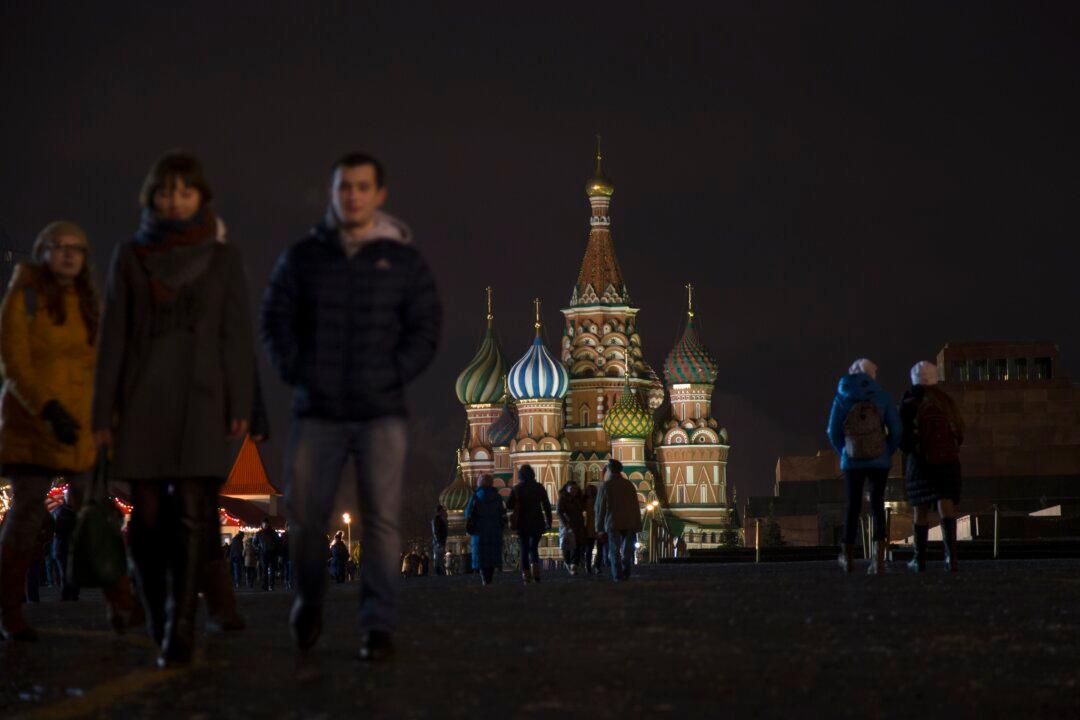MOSCOW—A Moscow court on Monday moved up the date of its verdict in a criminal case against President Vladimir Putin’s top foe in an apparent bid to derail a planned protest.
Earlier this month, prosecutors asked the court to convict Alexei Navalny of defrauding a cosmetics company and to sentence him to 10 years in prison.
Navalny, who has been under house arrest since February, has called the charges against him ludicrous. His supporters set up a group on Facebook to organize a protest near the Kremlin on Jan. 15, when the verdict was to be announced, with tens of thousands voicing their readiness to attend.
But in a surprise move the court said the verdict and sentence will now be given Tuesday.
Navalny’s supporters saw the move as reflection of the authorities’ fear of the protest and quickly launched a campaign to organize a demonstration in the same location on Tuesday.
“We have no choice, we need to come out tomorrow and show how numerous we are,” the organizers said on Facebook. Hours after the court’s move, about 13,000 people signed up on Facebook to join the rally near the Kremlin after Tuesday’s verdict, even though participants in unsanctioned protests face heavy fines and possible prison sentences.
[aolvideo src=“http://pshared.5min.com/Scripts/PlayerSeed.js?sid=1759&width=480&height=300&playList=518570219&responsive=false”]
Navalny, a lawyer and popular blogger, rose to prominence with his investigations of official corruption and played a leading role in organizing massive anti-Putin demonstrations in Moscow in 2011 and 2012.
In a 2013 trial in a different criminal case, he was found guilty of embezzlement and sentenced to prison, but he was released the next day after thousands of people protested in the streets of Moscow. He was then handed a suspended sentence and finished a strong second in Moscow’s mayoral election in September 2013.
The request for such a lengthy prison sentence in the current case — unusual for financial crimes in Russia — sends a signal that the Kremlin may no longer have any qualms about putting Navalny behind bars. One reason could be that Putin’s approval ratings have soared to more than 80 percent, bolstered by the annexation of Ukraine’s Crimean Peninsula.
In Washington, State Department spokesman Jeff Rathke voiced concern about Navalny’s trial in an email response to an AP query and said that the prosecutor’s request for a 10-year sentence “appears to be the most recent example of the Russian government’s growing crackdown on independent voices.”
From The Associated Press. Mathew Lee in Washington contributed to this report.



